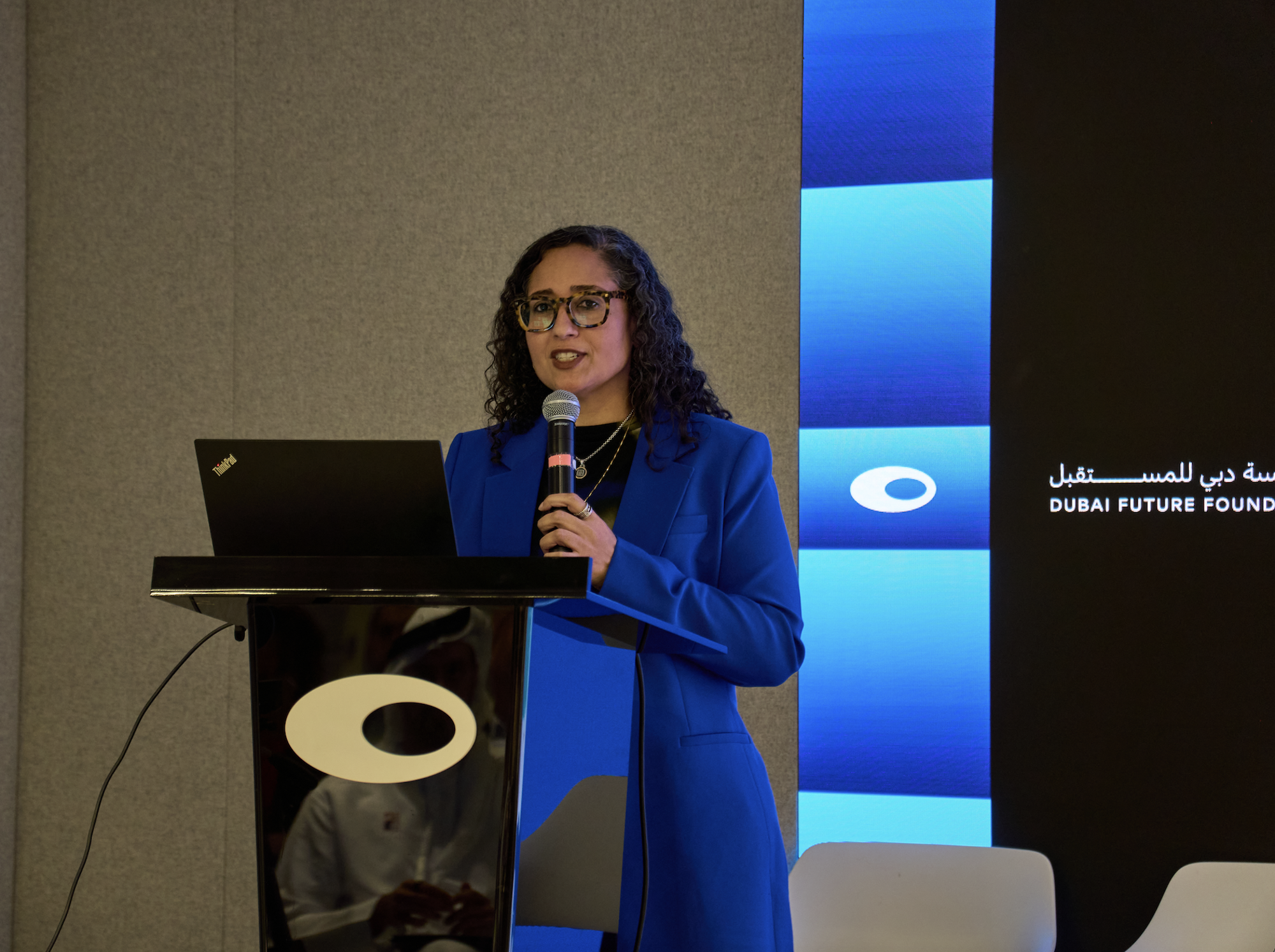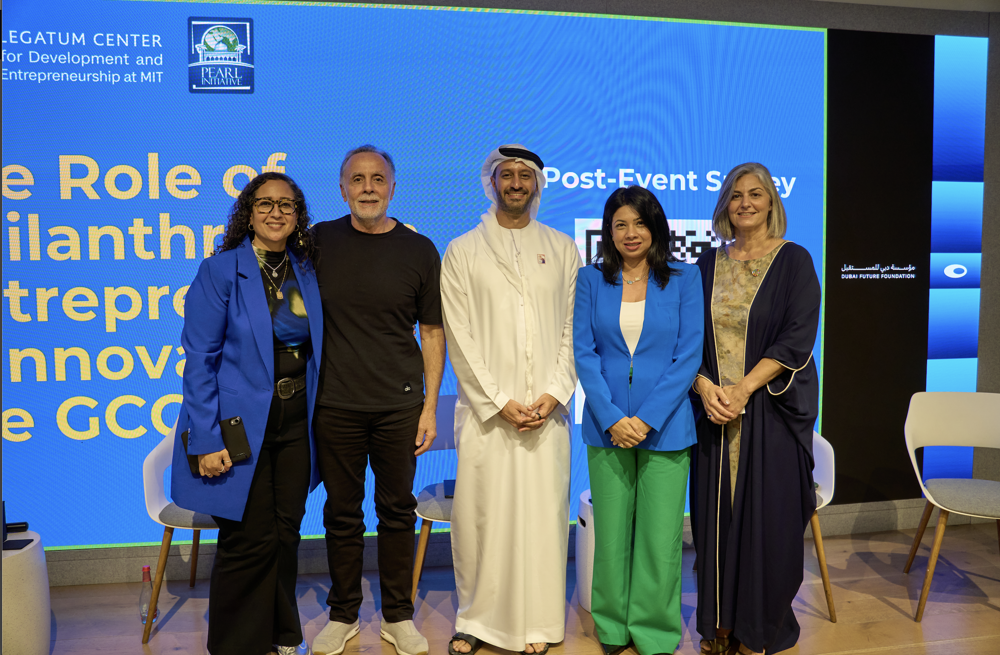What is philanthropy’s role in GCC entrepreneurship and innovation?
Dina H. Sheriff from the Legatum Center at MIT presents findings from a new study on impact intersections in the GCC

Dina H. Sheriff from the Legatum Center at MIT presents findings from a new study on impact intersections in the GCC

Circle members joined philanthropists, impact investors, entrepreneurs, academics, and other regional and global changemakers in Dubai for a presentation of a new report by the Legatum Center for Development and Entrepreneurship at MIT. Dina H. Sherif, executive director of the Legatum Center at MIT, shared key insights from the study, which was based on interviews with donors and businesspeople from across the United Arab Emirates, Saudi Arabia, and Bahrain.
“The Role of Philanthropy in Entrepreneurship and Innovation in the GCC”, which was produced with support from Saudi Arabia’s HRH Princess Moudi bint Khalid bin Abdulaziz Al Saud, offers a baseline understanding of private giving within the entrepreneurship and innovation space. Still to be officially published, the study makes several recommendations for how philanthropy can deliver more impact and increase the resilience of local entrepreneurs.
A key finding was that the regional giving landscape is complex and multi-layered, with various actors engaging in overlapping capacities, often blurring stakeholder distinctions. The study also noted that philanthropic and entrepreneurship stakeholders often operate in silos, which leads to fragmentation, and talent gaps, risk aversion, and a lack of funding for growth-stage startups is hindering entrepreneurial.
Top-level recommendations included: bolstering R&D; amplifying the role of corporate entities in the ecosystem; catalyzing entrepreneurship through education; and providing more access to capital through blended financing and other models.
“We found there is a lot of vocal support for innovation but if you dig a little bit deeper, people are really hesitant to actually put their money into entrepreneurship and innovation,” explained Sherif, who also noted “an incredible hesitation to think about things like blended finance or de-risking investment in things like deep tech or sectors that need quite a bit of mission capital”.
Sherif added: “We need to see a lot more coordination and co-creation.. and unified efforts… to solve the local and more global challenges that we're facing, especially in areas like climate, energy, education, food security.”
“We need to see a lot more coordination and co-creation.. and unified efforts… to solve the local and more global challenges that we're facing, especially in areas like climate, energy, education, food security.”
Dina H. Sherif, executive director of the Legatum Center at MIT

(L to R) Dina H. Sheriff, Fadi Ghandour, Nader AlBastaki, Sabrin Rahman, and Dr Sonia Ben Jaafar.
Dr Natasha Matic, the executive director at Global Commons Alliance’s Accountability Accelerator, who worked with Sherif on the study, called on regional philanthropy to find new ways to collaborate and deliver impact.
“The limitations of traditional grantmaking have been increasingly visible all around the world,” she said. “This is not just happening in the GCC. It's all around the world. And as social challenges grow more complex, the need for innovation and impactful strategies in philanthropy has never been more pressing.”
And she added: “Philanthropy can foster social connections and collaboration. It can enable diverse actors to share insights. It can align efforts and even pool resources for a larger systemic change. It can play a pivotal role in entrepreneurship education, and in building a culture that celebrates innovation-driven entrepreneurship.”
Following the presentation of the report, Sherif moderated a panel discussion with Fadi Ghandour, founder & CEO, Wamda Capital, Nader AlBastaki, Managing Director, Dubai Future District Fund, Dr Matic, Mona Ataya, founder of Mumzworld, HSBC’s head of sustainability for MENAT, Sabrin Rahman, and Dr Sonia Ben Jaafar, CEO, Abdulla Al Ghurair Foundation.
The event was hosted by the Dubai Future Foundation with the Pearl Initiative.
It's a good idea to use a strong password that you're not using elsewhere.
Remember password? Login here
Our content is free but you need to subscribe to unlock full access to our site.
Already subscribed? Login here